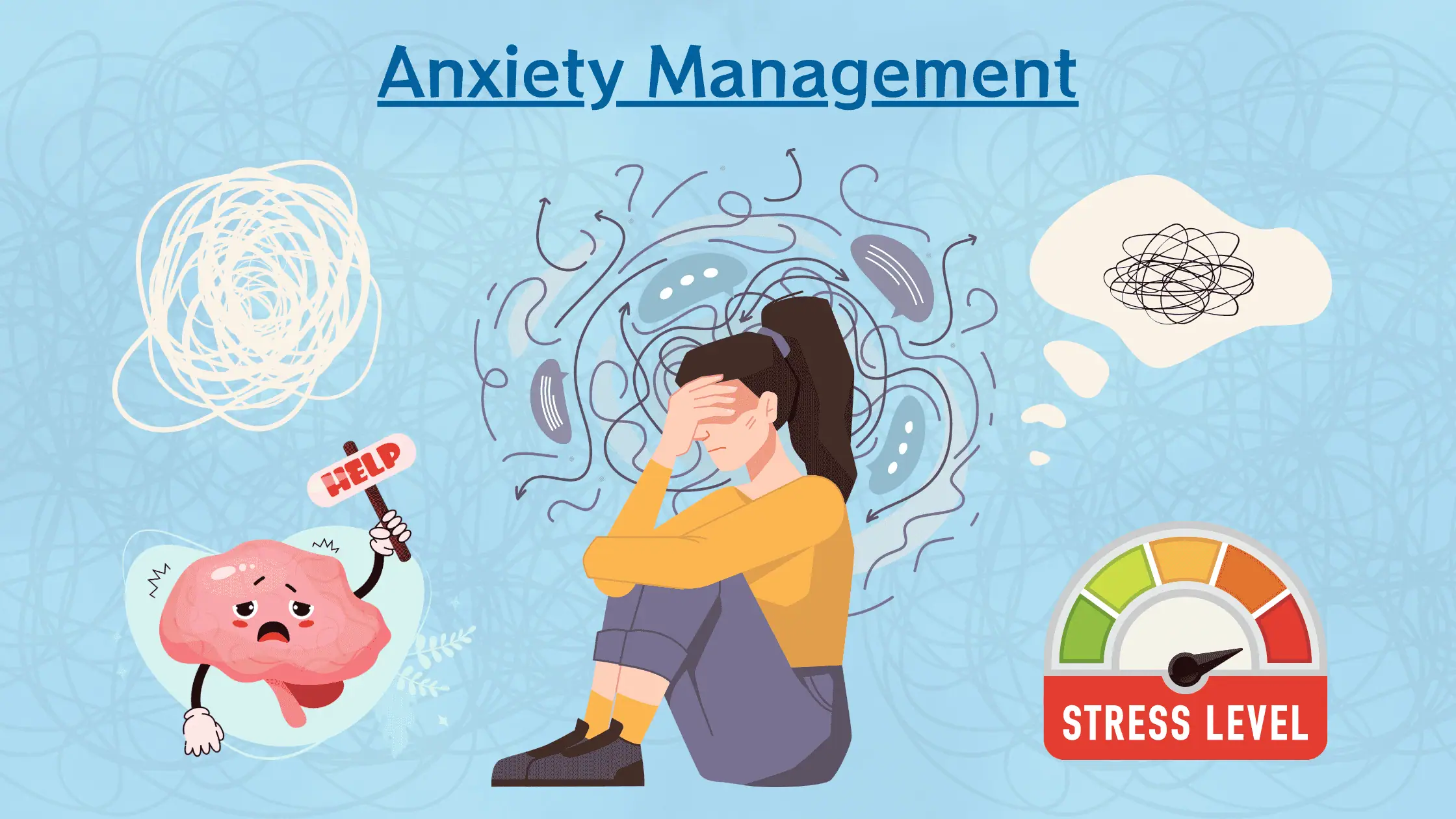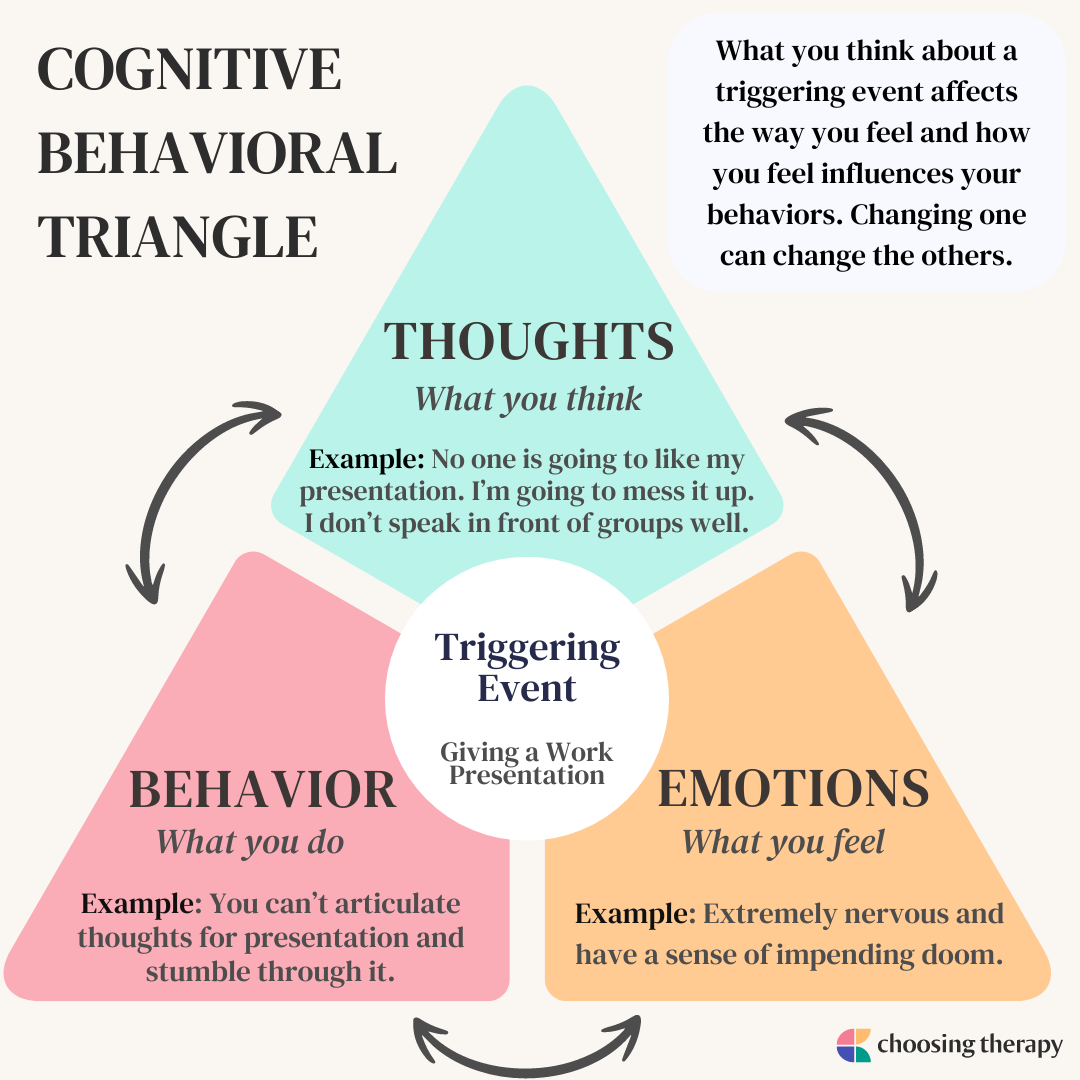Trusted counselling for anxiety disorder support by licensed therapists
Trusted counselling for anxiety disorder support by licensed therapists
Blog Article
Exploring Various Approaches in Coaching for Anxiousness Condition for Long-term Change
When tackling anxiousness disorders, it's necessary to explore a range of counseling methods. Each technique offers distinct insights and tools to assist you manage your signs and symptoms successfully. You could find that integrating strategies can yield the very best results. However, recognizing the nuances of these strategies is essential to fostering lasting change. Suppose the best combination could release a new level of emotional well-being for you?
Recognizing Stress And Anxiety Conditions: A Brief Introduction
Stress and anxiety disorders, which influence millions of people worldwide, can greatly impact day-to-day live. You may experience overwhelming sensations of fear or fret that appear uncontrollable. These sensations can bring about physical symptoms like a racing heart, sweating, or even wooziness. Common kinds of stress and anxiety conditions include generalized anxiety disorder, panic attack, and social stress and anxiety condition. Each has one-of-a-kind indications, however they all share a tendency to interrupt your routine and relationships.Understanding the origin of your anxiety is vital. It might come from genes, brain chemistry, or life experiences. Recognizing your triggers can assist you handle your feedbacks much better. It's essential to bear in mind that you're not alone in this battle. Lots of people face similar difficulties, and looking for help is a strong step towards sensation better. By learning more about stress and anxiety problems, you're already on the path to understanding and managing your problem better.
Cognitive-Behavioral Treatment: Challenging Unfavorable Idea Patterns
In Cognitive-Behavioral Therapy, you'll start by recognizing the adverse idea triggers that add to your anxiety. Once you acknowledge these thoughts, you'll function on replacing them with more positive options. With each other, you'll construct reliable coping approaches to help manage your stress and anxiety in daily circumstances.
Determining Adverse Thought Triggers

Recognizing the specific triggers behind your negative ideas can be crucial in handling anxiousness when you come across moments of distress. Start by taking notice of circumstances that provoke sensations of worry or worry. Is it a congested room, an approaching due date, or a discussion with specific people? Write these circumstances in a journal. This will help you recognize patterns in your reasoning. Likewise, notice physical feelings that accompany your unfavorable thoughts, like an auto racing heart or tightness in your breast. By determining these triggers, you get insight right into what's fueling your anxiety. Recognizing these connections is the initial step in challenging those thoughts and eventually gaining back control over your emotional feedbacks.
Changing Thoughts With Positives
Challenging adverse thought patterns is a vital action in transforming your way of thinking and decreasing anxiety. You might often discover on your own trapped in cycles of self-doubt or tragic thinking. Instead of letting these ideas determine your sensations, practice replacing them with favorable affirmations or practical alternatives. When you believe, "I can't manage this," move it to, "I can take care of obstacles one action at a time." This simple modification can greatly affect your psychological state. Frequently recognizing and countering these negative ideas helps develop a much healthier interior dialogue. Bear in mind, it takes time and initiative, but continually practicing this strategy can cause long-term modification, encouraging you to deal with anxiousness with restored self-confidence and strength.
Structure Coping Methods With Each Other
Replacing unfavorable thoughts is only the beginning of managing anxiety effectively. To create lasting adjustment, you require to construct coping approaches that encourage you. Cognitive-Behavioral Therapy (CBT) helps you identify and challenge those purposeless thought patterns. Together, you and your counselor can explore how these thoughts influence your feelings and behaviors.Start by establishing practical methods, like journaling or mindfulness exercises, that allow you to face anxiety head-on. When you face your concerns progressively, you'll discover to react in different ways.

Mindfulness and Acceptance-Based Approaches: Cultivating Present-Moment Understanding
As you browse the complexities of anxiousness, incorporating mindfulness and acceptance-based techniques can considerably improve your capacity to cultivate present-moment understanding. By concentrating on the right here and currently, you'll find that you can observe your thoughts and sensations without judgment (Counseling services for anxiety). This technique assists you recognize your anxiety without really feeling overwhelmed by it.Engaging in mindfulness exercises, such as deep breathing, body scans, or assisted meditations, permits you to ground yourself in your present experience. Acceptance-based strategies motivate you to embrace your emotions instead than battle against them. They shed their power over you.Incorporating these practices into your day-to-day routine can transform how you respond to stress and anxiety when you approve your feelings. You'll create resilience and discover to navigate difficult scenarios with greater ease. Ultimately, cultivating present-moment understanding lays the structure for long-term change, empowering you to lead a much more meeting life
Exposure Therapy: Facing Concerns Slowly
Exposure therapy helps you face your worries in a progressive way, making it less frustrating. You'll learn techniques to face anxiety-provoking circumstances step by step, while also constructing coping strategies to handle your responses. This technique equips you to take control and minimize stress and anxiety in time.
Gradual Direct Exposure Strategies

When facing anxiety, slowly confronting your anxieties can be a powerful means to gain back control. This technique, referred to as gradual direct exposure, involves gradually exposing yourself to the scenarios or objects that activate your anxiety. Begin with much less daunting situations and gradually function your way approximately more tough ones. If you're afraid of public talking, you might start by speaking in front of a mirror, then advance to sharing thoughts with a friend, and eventually resolve a little team. Each step assists desensitize you to the anxiety, developing your self-confidence over time. Keep in mind, it's important to pace yourself and celebrate little triumphes as you relocate via this process, reinforcing your ability to handle stress and anxiety properly.
Structure Coping Approaches
Building effective coping strategies is vital for taking care of anxiousness, specifically as you challenge your anxieties progressively - Counseling services for anxiety. One effective approach is direct exposure therapy, where you begin by facing your worries in a regulated fashion. Start with less daunting scenarios and slowly work your means up to more tough circumstances. This gradual exposure assists desensitize you to stress and anxiety activates, making them less overwhelming.Incorporate relaxation techniques, such as deep breathing or mindfulness, to calm your mind during direct exposure. Track your progression, commemorating small triumphes in the process to increase your confidence. Keep in mind, it's all right to take your time; the objective isn't excellence yet consistent enhancement. By building these strategies, you'll empower on your own to browse stress and anxiety and accept life much more fully
Psychodynamic Treatment: Discovering Root Reasons of Anxiousness
Psychodynamic treatment explores the unconscious mind, revealing the source of your stress and anxiety. By examining your thoughts, feelings, and past experiences, this method aids you discover underlying conflicts and unsolved concerns that may add to your current anxiousness. You'll deal with a specialist to check out childhood experiences, partnerships, and emotional patterns that form your reactions today.As you gain insight right into these deeper layers of your subconscious, you'll start to recognize exactly how past occasions influence your existing behavior. This understanding can lead to catharsis, permitting you to process feelings you might have suppressed.Through the healing connection, you can also recognize defense devices that may have established over time, supplying a clearer course to transform. Eventually, psychodynamic therapy furnishes you with the tools to resolve your anxiety at its core, promoting long-term makeover in your psychological health.
Alternative and integrative Approaches: Incorporating Methods for Greater Efficacy
Incorporating different therapeutic strategies here can improve your trip towards managing stress and anxiety better. By incorporating elements from cognitive-behavioral therapy, mindfulness methods, and all natural methods, you can develop an individualized strategy that resolves your unique demands. You might use cognitive-behavioral techniques to challenge negative idea patterns while including mindfulness workouts to ground on your own in the existing moment.Additionally, checking out all natural techniques such as yoga exercise or reflection can advertise leisure and decrease stress and anxiety signs. This mix permits you to establish better self-awareness and resilience.Experimenting with these diverse approaches can help you find what resonates most with you. Bear in mind, it has to do with finding a synergy that functions, as opposed to staying with a solitary approach. This integrative strategy not just offers immediate alleviation yet likewise promotes lasting skills for taking care of anxiousness, encouraging you to redeem control over your life.
The Duty of Support Systems: Structure Durability With Connection
While it could appear that managing anxiousness is a solitary journey, having a solid support group can play a necessary role in your strength. Surrounding on your own with compassionate close friends, household, or support system creates a secure area where you can openly share your sensations and experiences. When you connect with others, you advise yourself that you're not the only one in this struggle.These partnerships supply inspiration and can give functional coping strategies that have actually functioned for others. It's likewise an opportunity to gain point of view; buddies can assist you see scenarios in different ways, decreasing sensations of isolation.Moreover, psychological support fosters a sense of belonging, which can substantially reduce stress and anxiety signs and symptoms. By leaning on your support system, you can build strength and take on challenges much more properly. Remember, reaching out for assistance is an indicator of toughness, and it can make all the difference in your journey toward handling stress and anxiety.
Frequently Asked Concerns
What Are the Usual Symptoms of Stress And Anxiety Conditions?
You could experience restlessness, fatigue, trouble concentrating, irritation, muscle tension, and rest disruptions. Physical symptoms can include fast heart beat, sweating, and shivering. Recognizing these indications early can aid you seek suitable assistance and therapy.
For How Long Does Therapy Normally Last for Anxiousness Problems?
Treatment for anxiety conditions normally lasts anywhere from a couple of weeks to numerous months. It actually relies on your specific requirements, development, and the techniques your therapist makes use of to aid you manage your anxiety effectively.
Can Medicine Be Made Use Of Together With Treatment for Stress and anxiety?
Yes, medication can most definitely be utilized along with therapy for anxiousness. Incorporating both approaches typically improves treatment performance, helping you manage signs while exploring underlying problems via therapy (Counseling services for anxiety). Always consult your medical care provider for individualized advice
Exist Self-Help Techniques for Managing Anxiety?
Yes, there are numerous self-help techniques for managing anxiousness. You can exercise mindfulness, engage in regular workout, maintain a balanced diet regimen, develop a regular, and use deep breathing strategies to help reduce anxiousness signs effectively.
How Do I Know if I Need Professional Assistance for Stress And Anxiety?

Report this page